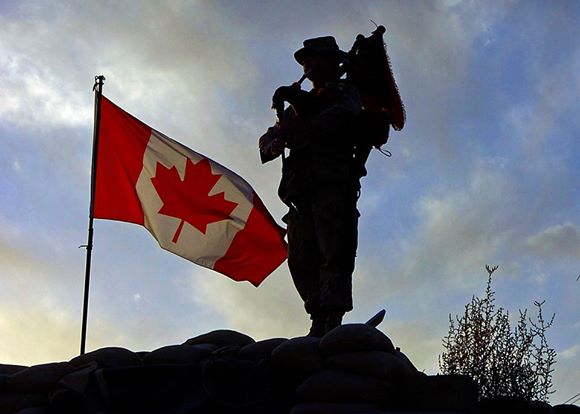A new report released Thursday outlines the growing burden of mental illness in the cost Canada pays for combat, and outlines gaps in information on veterans’ health care costs once they leave the military.

The federal Parliamentary Budget Officer estimated how much the feds will spend on veterans over the next decade and beyond and tried to calculate the impact of the Afghan mission, changes to the New Veterans Charter and the increased incidence of chronic mental illness among men and women in the military.
INVISIBLE WOUNDS: Crisis in Canada’s military
The new Veterans Affairs Minister has vowed to drastically alter the way Canada deals with veterans making claims, giving a veteran the benefit of the doubt instead of requiring him or her to prove medical or rehabilitative need up front.
That will probably reduce administrative costs but may also speed up payouts to vets in need. This report didn’t measure the impact of that change.
WATCH: Kent Hehr promises to change the way veterans are treated
“The Minister of Veterans Affairs welcomes the PBO’s latest report on financial support to disabled Veterans and looks forward to working with the PBO on future reports in an open and transparent manner,” spokesperson Christian Daniel said in an email Thursday.
“The Report’s findings are in line with VAC’s projected program spending. The Government committed to better serving Veterans and offering more support to Veterans’ families. These commitments have been costed through a planning framework that is realistic, sustainable, prudent, and transparent.”
The federal government will spend an estimated $3.3 billion caring for disabled veterans in the next decade, the report says.
And by 2017 the amount Ottawa pays to veterans with mental illness will exceed what it pays veterans with musculoskeletal injuries.
Afghan veterans make up only 18 per cent of Canada’s vets right now. But they’re younger and are three times more likely to need mental health treatment, which means they’re going to need assistance for a much longer period of time, the report says.
READ MORE: Invisible wounds, revisited
“These Veterans typically require greater and increasing resources over time, in contrast with their peers whose use of resources declines over time,” the report reads.
A one-year increase in rehabilitation time for veterans with mental illness would cost $282.5 million over a decade.
- Trudeau tight-lipped on potential U.S. TikTok ban as key bill passes
- Canadian man dies during Texas Ironman event. His widow wants answers as to why
- Hundreds mourn 16-year-old Halifax homicide victim: ‘The youth are feeling it’
- On the ‘frontline’: Toronto-area residents hiring security firms to fight auto theft
In the wake of changes to veterans benefits earlier this year, reservists hurt or killed during service are supposed to receive benefits equal to those of their regular force peers.
It means they and their families will receive about $218,000 more, over a 10-year period, than they would have before.
READ MORE: Men in Canada’s army are killing themselves at 3 times the rate of other military branches
The report emphasizes that the cost of military missions extends far beyond the combat itself.
“The costs of war extend beyond the Forces’ withdrawal from theatre, and beyond the boundaries of DND’s budget.”
If Canada engaged in a one-year military mission on the scale of its 2007 Afghan mission, the report estimates, it would cost an estimated $145.2 million over the course of nine years, but far more in the decades following.
“A single year of conflict can result in additional costs for several years in the future,” the report reads.
“This is because even after decades, Veterans who had suffered an injury or illness during this conflict are still entering the system.”
But the Parliamentary Budget Officer also notes he ran up against challenges simply calculating the amount the feds will spend on vets with mental illness: In many cases the data isn’t available.
“Through information requests and discussions with subject matter experts, PBO learned that the data required for this work would be difficult, if not impossible, to acquire,” the report reads.
And there’s no information gathered on the health care needs and expenditures of veterans once they enter the civilian health care system right after they leave the military.
That’s of particular concern for the growing number of young veterans who may need mental health treatment for years or decades after they’re discharged.
“The current approach makes it impossible to determine how much is spent on the care of a disabled Veteran after he or she is discharged from the Forces, or after the Veteran begins to rely upon the civilian (public) health care system,” the report reads.
“This is especially relevant when examining the cost of caring for Veterans living with mental illness. Studies indicate that these Veterans typically require greater resources over time, than do their peers.”




Comments